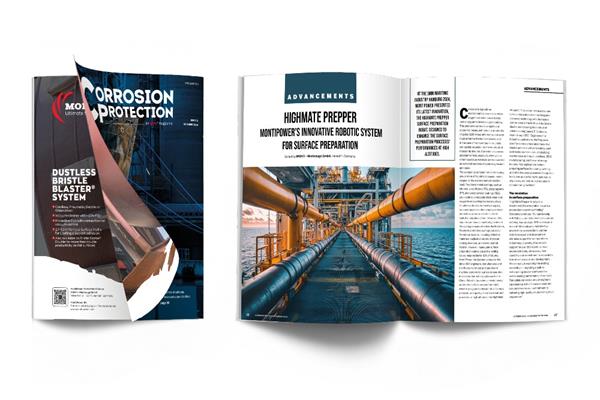
Read the latest issue of the magazine dedicated to corrosion prediction, prevention, protection and mitigation!
A common mistake that we editors of technical magazines often unintentionally make is to focus our content on technology, research, development and innovation, sometimes straying into market analysis. However, we usually neglect the human factor related to the skills, abilities and talents required of employees by certain industries to be efficient, to guarantee quality, to prosper.
We tend to describe in detail any technology, discovery, chemical product and scientific achievement that comes our way, but rarely do we reflect on the fact that these technologies must be grasped, mastered and promoted by people, by the operators who will use them on a daily basis in their respective lines of work to contribute to the advancement of the sector.
The skills required by the corrosion protection industry
are not only technical and application-related, but also soft skills such as mental flexibility and the ability to work under stress and in demanding situations (wet environments, challenging weather conditions, isolated or remote locations), which often entail spending a lot of time away from home. Focus, psychological strength and passion for one’s job are as crucial as knowing and mastering the latest technologies.
Technology facilitates tasks, shortens operating times and improves performance, but it must be understood in depth to actually work. Within a company – whatever product or service it sells – training and consulting are just as essential investments as those made in technology, as they enable each worker to continue to be efficient and effective and work safely.
More than one article in this Corrosion Protection issue offers interesting insights into this topic. There are so many tools that can support corrosion protection operators and make their work easier nowadays: artificial intelligence, unmanned robotic units, corrosion analysis, evaluation and prediction models and flexible equipment and application systems can be of great help not only in reducing the impact of corrosion on GDP (which is notoriously exorbitant) but also in enabling teams to work better, faster and more accurately and effectively, with benefits also for the personal balance and well-being of operators.
The transfer of AI from research to industry thus becomes a key step to ease the workload of operators and improve their performance. Similarly, reducing the asymmetry of information and knowledge between contracting parties, as well as anticipating and avoiding the loss of expertise in the industry – in brief, the obsolescence of information and skills – play an important role in the advancement of the anti-corrosion industry and the welfare of its operators.
In recent years, we have witnessed a decrease in funding for technical training in favour of financial investments. However, this trend must be reversed because only adequate knowledge allows companies to progress and grow.
Magazines such as Corrosion Protection – full of studies and technological insights, but also real success stories of virtuous companies in the corrosion protection sector – contribute to fostering industrial culture and help new technologies and innovation paths take root. That is why they must be supported.
READ THE MAGAZINE!